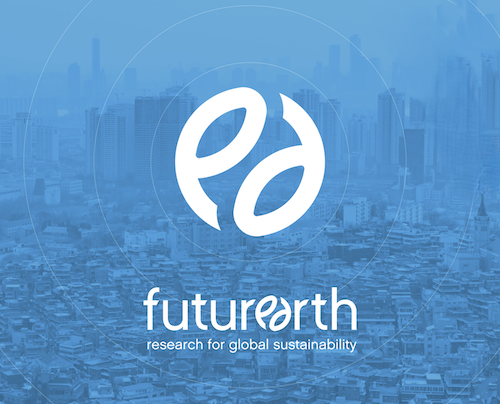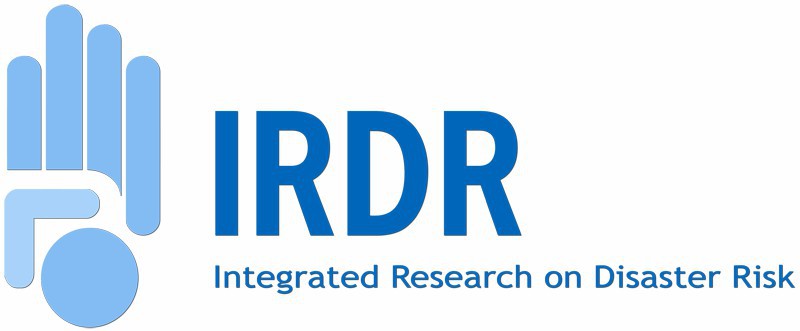Our Motivation
Extreme climate and weather events, associated disasters, and emergent systemic risks are becoming increasingly critical in the context of global environmental change.
They threaten the achievement of the Sustainable Development Goals (SDGs).
Objectives, Principles and Partnerships
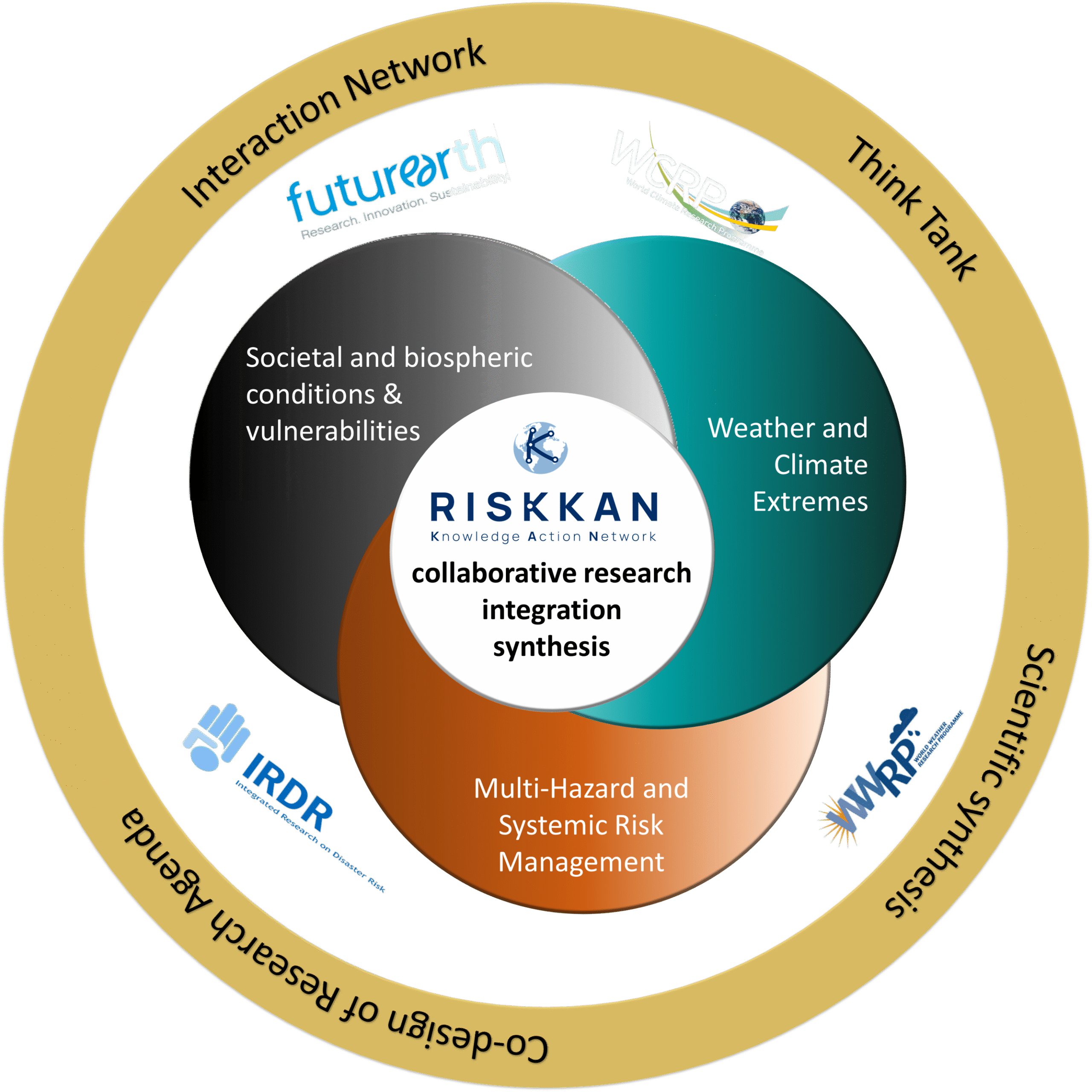
Objectives
- To address systemic emergent and cascading risks under global environmental & societal change
- To build knowledge on disaster risk reduction
- To provide an open platform for scientific communities across disciplines working on extreme events, systemic risks, DRR and governance to exchange information, knowledge and data
Principles
- Solution-oriented, using existing and generating new knowledge and data to address tangible risk management challenges.
Collaborative, including partnerships between scientific communities, people and ecosystems at risk, administrative, business and policy actors. - Synthetic, moving toward synthesizing existing scientific knowledge across sectors.
- Solution-oriented, open, for all data, analysis ideas and outcomes.
Inclusive, respecting gender, career stage and geographical equity.
Cutting-edge, innovative, developing tools and analysis based on excellent science and technology.
Partnerships
Each of the four programmes brings a specific science orientation and community of practice:
- Future Earth, covers various sustainability research agendas through its interconnected thematic Global Research Networks, cutting across the nexus of social and environmental sciences and engaging stakeholder expertise, focusing on longer-term development and associated risk scenarios with a broad sustainability perspective to risk and vulnerability.
- IRDR contributes a core focus on vulnerability and risk analysis, effective decision-making in complex and changing risk contexts. It also brings close connections to UNDRR and through its International Centres of Excellence we are connected to nationally embedded action oriented research excellence.
- WCRP brings in extensive expertise and data resources on climate change, weather and climate extremes and the multi-scale dynamic interactions between natural and social systems that affect climate. It is contributing significantly to the IPCC assessment reports, UNFCCC and other multilateral environmental conventions.
- WWRP as WMO’s international programme for advancing and promoting research activities on weather, its prediction and its impact on society contributes its expertise in Multi-Hazard Early Warning capabilities of the end-to-end warning chain from observation to forecast to response.
Examples
Extreme events have massive implications across the planet. Hazards related to environmental change include floods, storms, drought, heatwaves, and much more. Some of these hazards have direct and devastating effects for local populations, others may even have larger-scale, cascading and/or lagged systemic impacts on education, economic and cultural dependencies.
Precipitation extremes are leading worldwide to disastrous landslides and/or floods; cascading risks might be quite straight forward in some instances, but are less clear when complex societal mechanisms are involved. Destroyed harvests and infrastructure can force families to sell their homes or land, or put their children to work at the cost of longer-term education, income, and/or well-being.
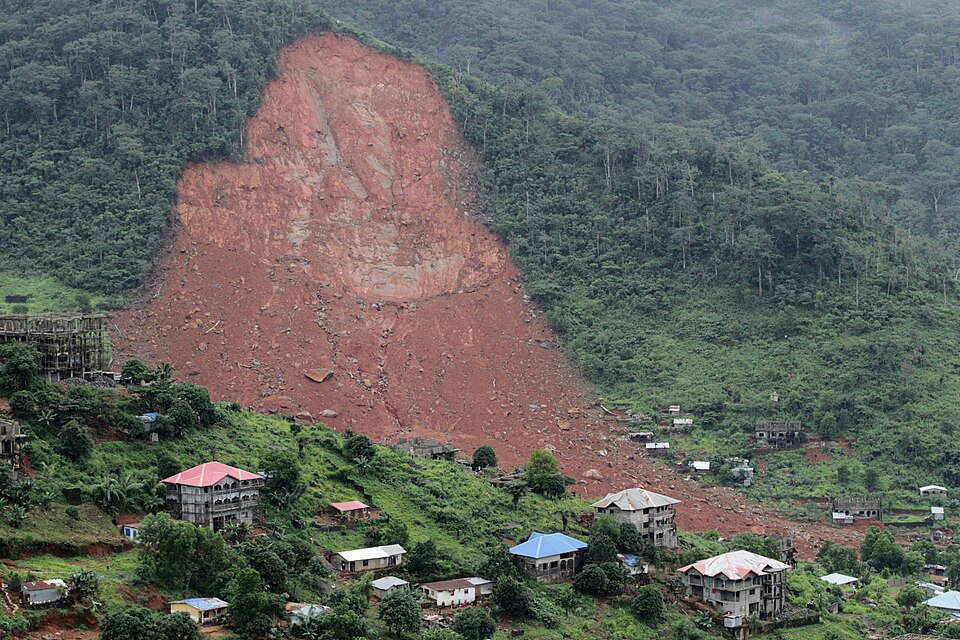
Freetown, Sierra Leone August 2017
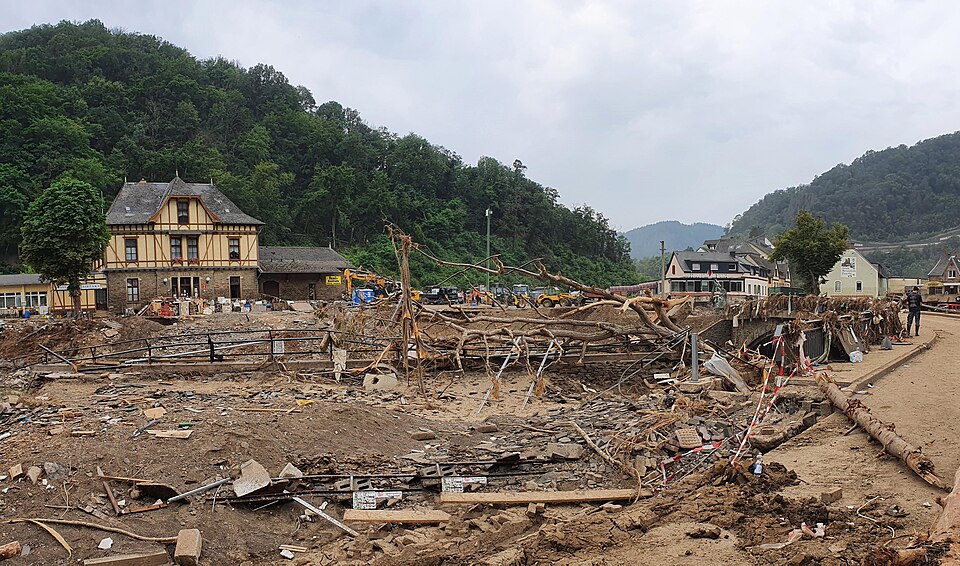
Flooded Ahr valley (Germany) after extreme rain falls, 2021
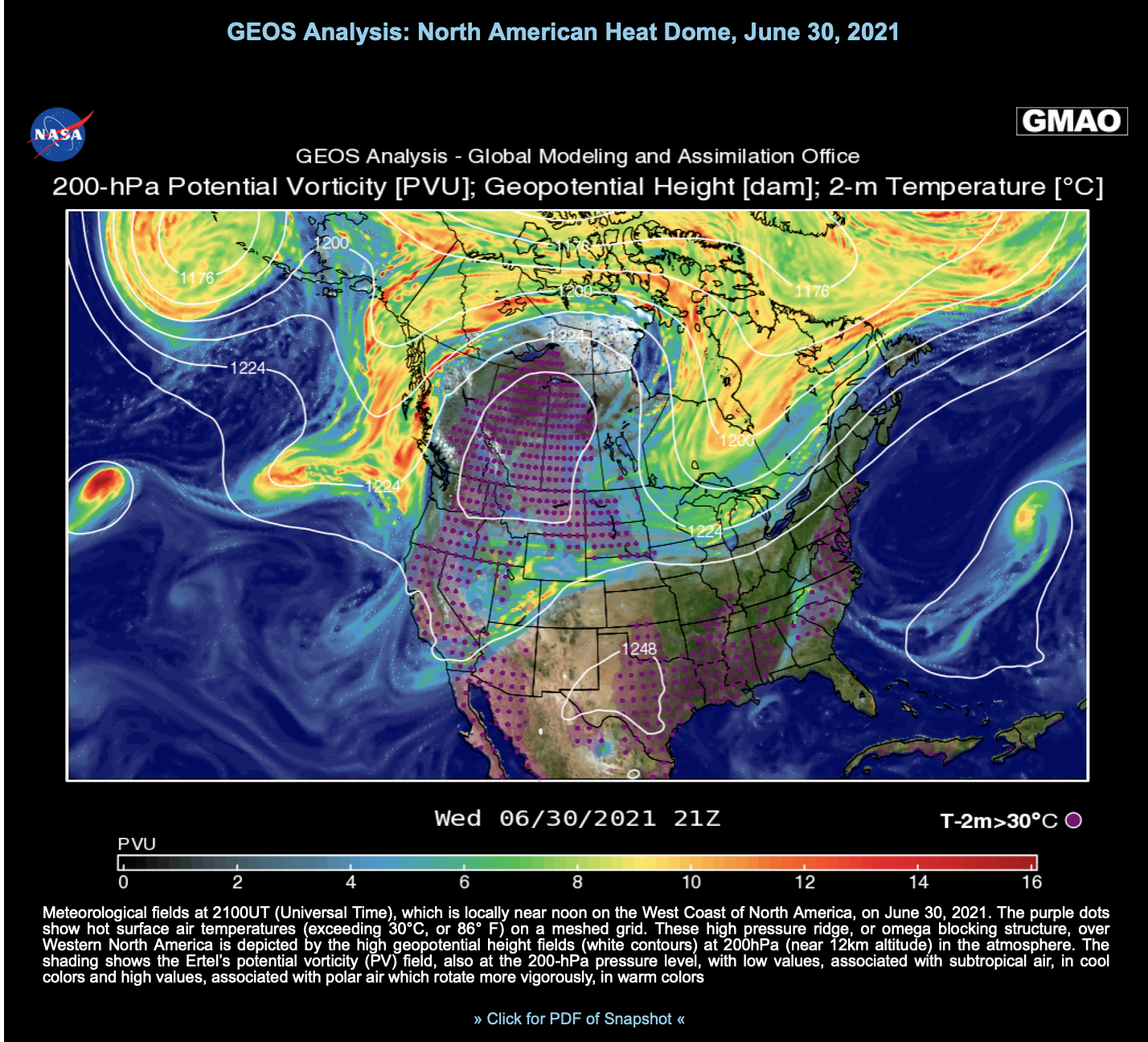
Heatwave in North America in 2021
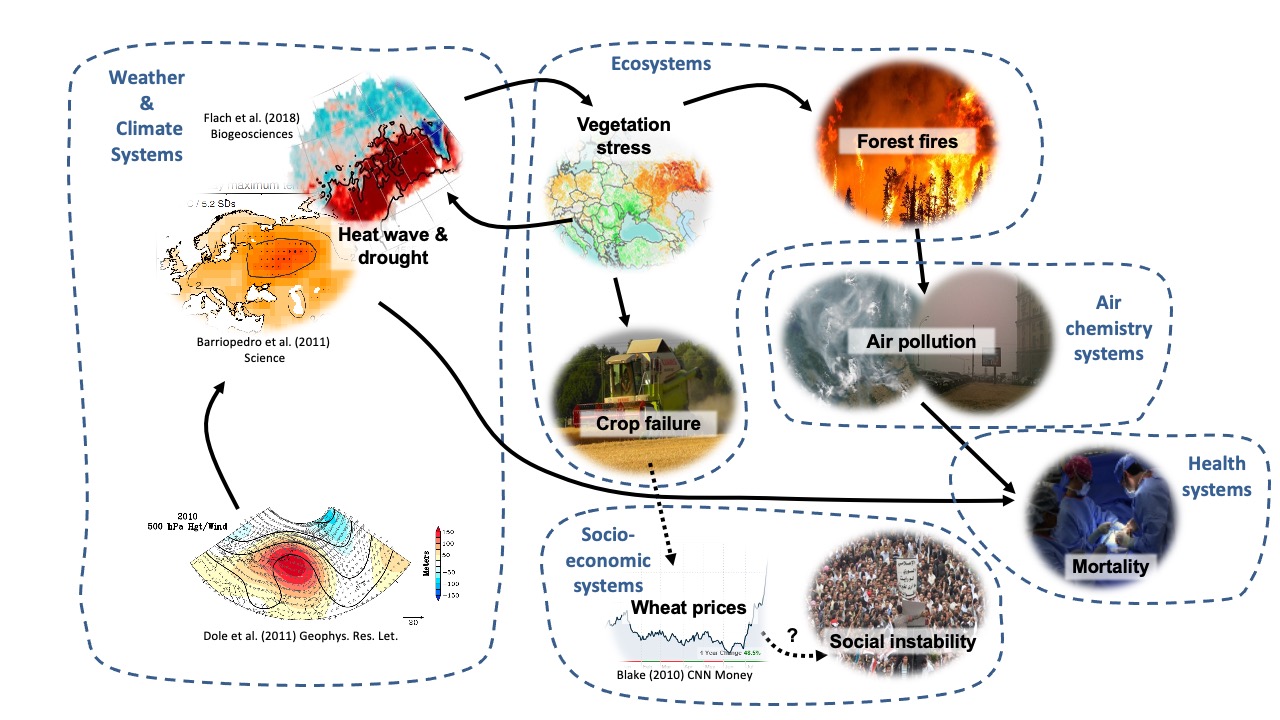
Russian Heatwave 2010
Domino effects of heat waves can transcend sectors and country borders (Reichstein et al. 2021). Heat waves can trigger forest fires that cause air pollution and thus endangering public health. Drought-related crop failures can increase food-price volatility, and social instability or migration.
The 2010 Russian Heatwave with more than 10000 fatalities is a clear example of risk cascades in natural and societal systems, both via direct heat effects and through causal chains. It is also hypothesized that it fuelled social instability in the wake of the Arab Spring via rising wheat prices.

